Testing For Lynch Syndrome
Testing for lynch syndrome. If one or more of the proteins are missing in the tumor it suggests that there is a mutation in that gene which could then be found through genetic testing. The EPCAM gene is a recently discovered contributor to Lynch syndrome accounting for an estimated 1-3 of all detectable Lynch syndrome mutations. Germline Testing for Lynch Syndrome.
MSI is stable in 90-95 of tumor specimens. In some cases additional testing is needed to know for sure if the cancer was caused by Lynch syndrome. Lynch Syndrome Screening Cascade testing for Lynch Syndrome.
For anyone whose cancer has a high MSI level or is missing deficient in one of the MMR proteinsdoctors will most likely recommend genetic testing for Lynch syndrome. With the emergence of several targeted treatments that have shown efficacy in individuals with germline pathogenic variants specifically in DNA mismatch repair the need for germline genetic testing has become even more pronounced. Analysis of MLH1 promoter hypermethylation by pyrosequencing Lynch syndrome LS is an inherited disorder involving germ-line mutation of DNA mismatch repair genes.
Even if you dont have cancer your doctor may suspect that Lynch syndrome runs in your family based on cases of colorectal cancer and other cancers associated with this syndrome in your relatives. The mismatch repair system involves a series of proteins including MSH2 MLH1 PMS2 and MSH6 which maintain DNA integrity. Testing may be done to help determine whether you have increased likelihood of Lynch syndrome and if so to diagnose Lynch syndrome.
Genetic testing for Lynch syndrome can also be offered to relatives with the aim of preventing Lynch syndrome-associated cancer developing or detecting it at an early stage. Although molecular genetic testing for Lynch. HNPCC is also known as Lynch syndrome or Cancer Family Syndrome.
These standards are pretty much a minimum standard of screening. Studies indicate that large deletions in the end of this gene can lead to a loss of MSH2 expression and result in Lynch syndrome. Access is free however one must register.
However if MSI is high further testing for Lynch Syndrome is recommended. Lynch Syndrome Testing Algorithm Pathogenic mutation identified Testing in family member was negative or variant of uncertain significance identified Consider FMTT Familial Mutation Targeted Testing NO for known mutation in family Consider LYNCH Lynch Syndrome Panel or testing for the variant of uncertain significance in family.
Provisional molecular screening test.
MSH2 MSH6 and PMS1 on chromosome 2 MLH1 on chromosome 3 MSH3 on chromosome 5 and PMS2 on chromosome 7. This test analyzes 5 genes associated with a hereditary predisposition to Lynch syndrome also known as hereditary non-polyposis colorectal cancer HNPCC. In some cases additional testing is needed to know for sure if the cancer was caused by Lynch syndrome. Analysis of MLH1 promoter hypermethylation by pyrosequencing Lynch syndrome LS is an inherited disorder involving germ-line mutation of DNA mismatch repair genes. To locate the guidelines for Lynch syndrome click under NCCN Guidelines for Detection Prevention and Risk Reduction and then click on Colorectal Cancer Screening. The mismatch repair system involves a series of proteins including MSH2 MLH1 PMS2 and MSH6 which maintain DNA integrity. Several types of tests can be done in different orders and combinations to see if. Consent is needed before genetic. MSH2 MSH6 and PMS1 on chromosome 2 MLH1 on chromosome 3 MSH3 on chromosome 5 and PMS2 on chromosome 7.
Lynch Syndrome Testing Algorithm Pathogenic mutation identified Testing in family member was negative or variant of uncertain significance identified Consider FMTT Familial Mutation Targeted Testing NO for known mutation in family Consider LYNCH Lynch Syndrome Panel or testing for the variant of uncertain significance in family. MSI is stable in 90-95 of tumor specimens. Provisional molecular screening test. If Lynch syndrome is suspected a simple screening test also known as a molecular. The majority of HNPCC is caused by mutations in one of several mismatch-repair genes. However if MSI is high further testing for Lynch Syndrome is recommended. If one or more of the proteins are missing in the tumor it suggests that there is a mutation in that gene which could then be found through genetic testing.


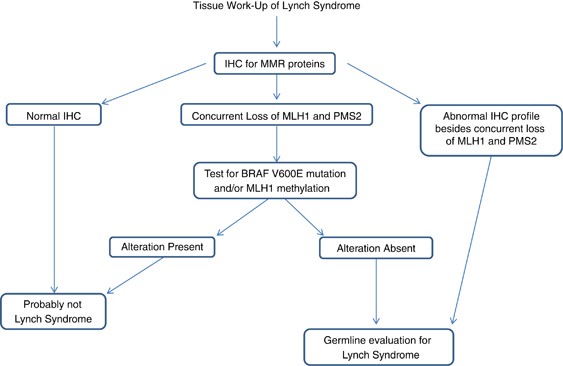
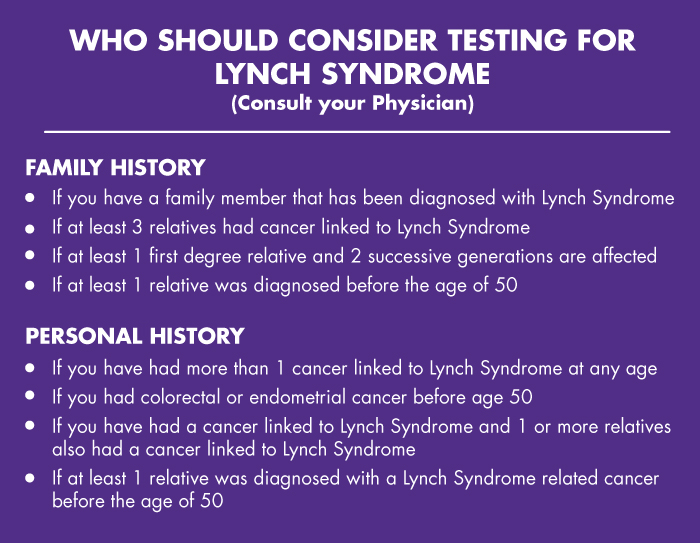







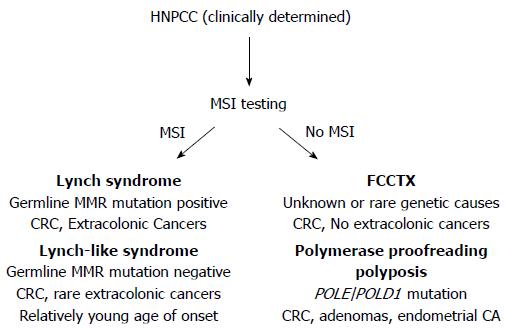


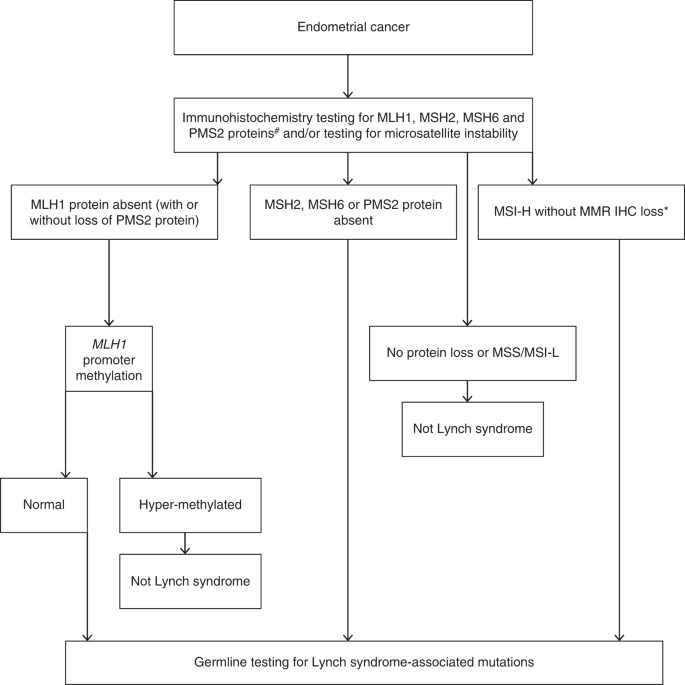
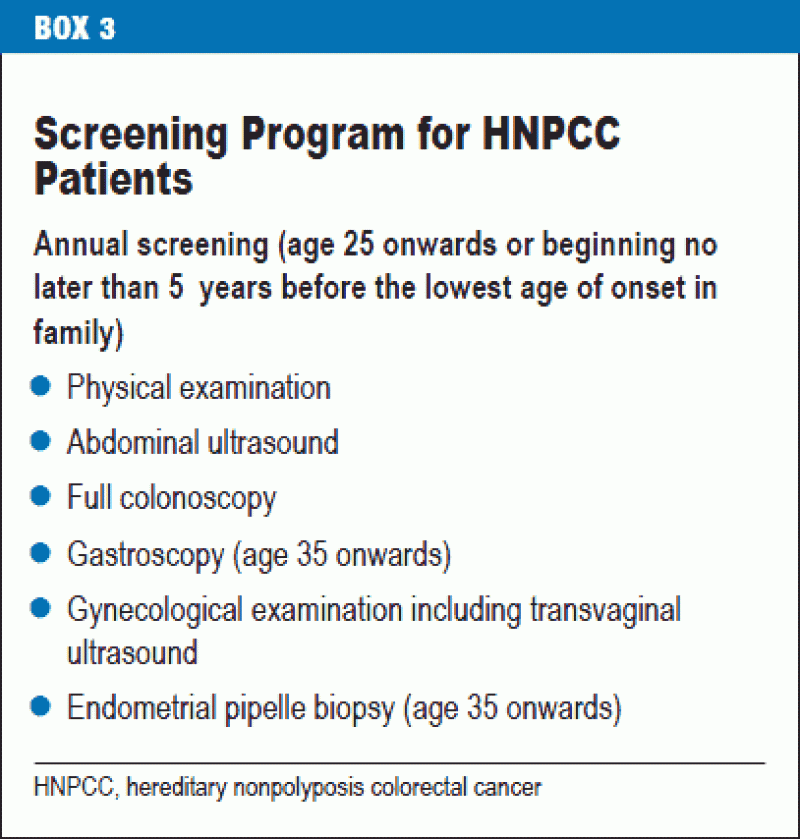
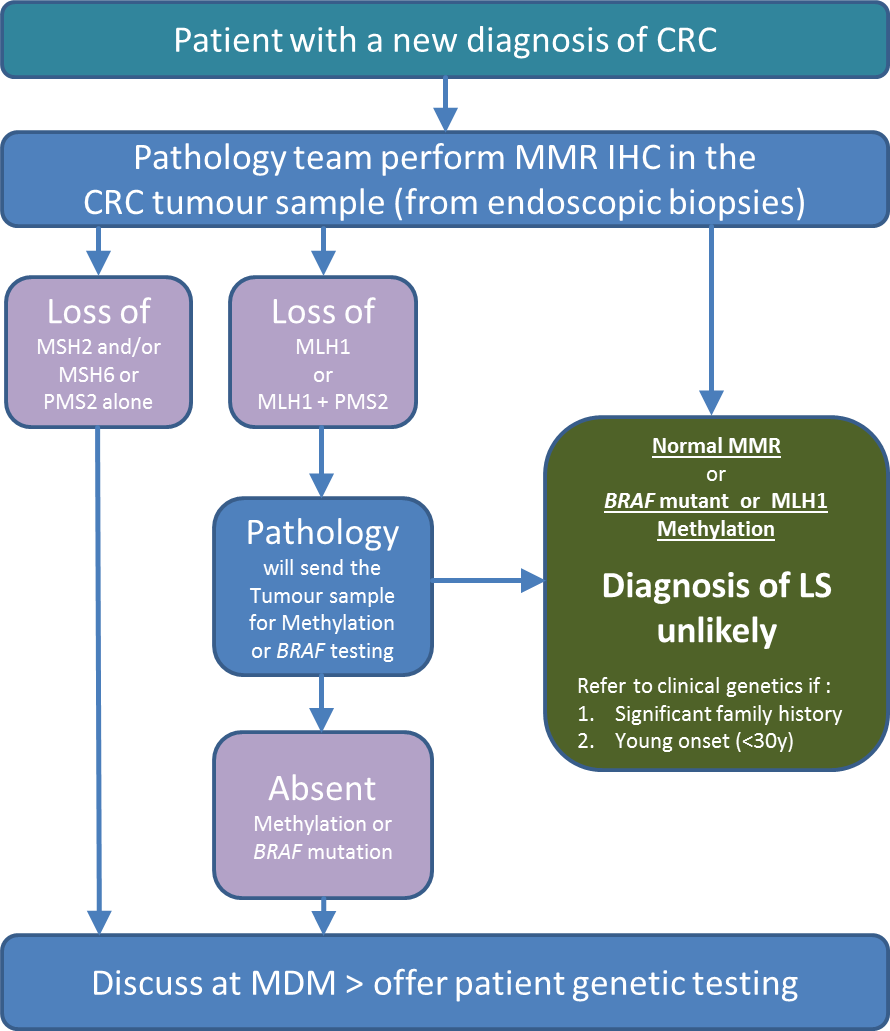
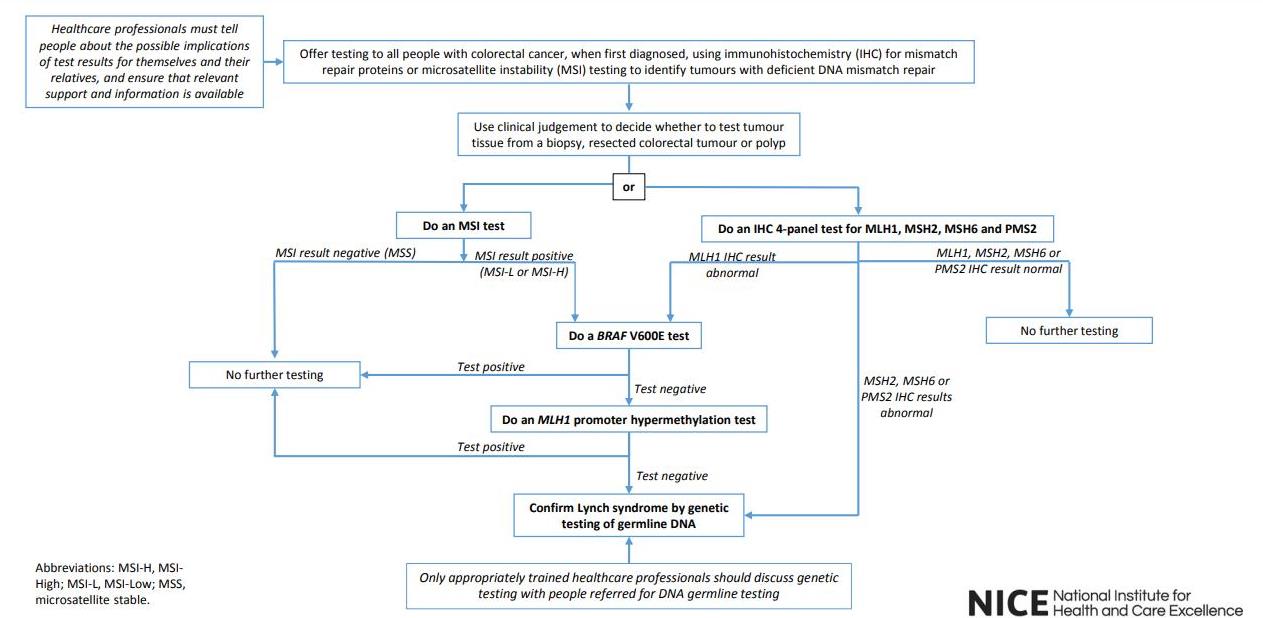
.jpg)
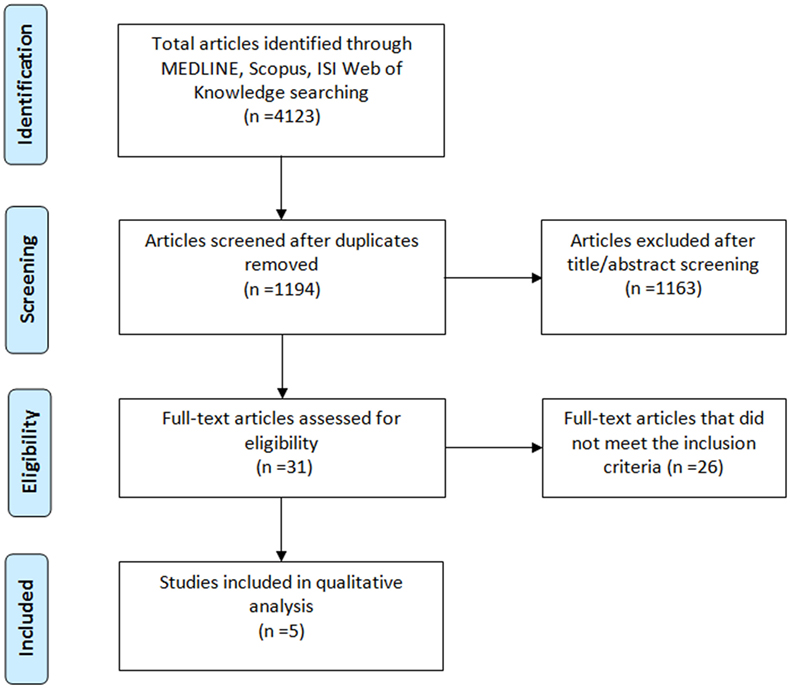
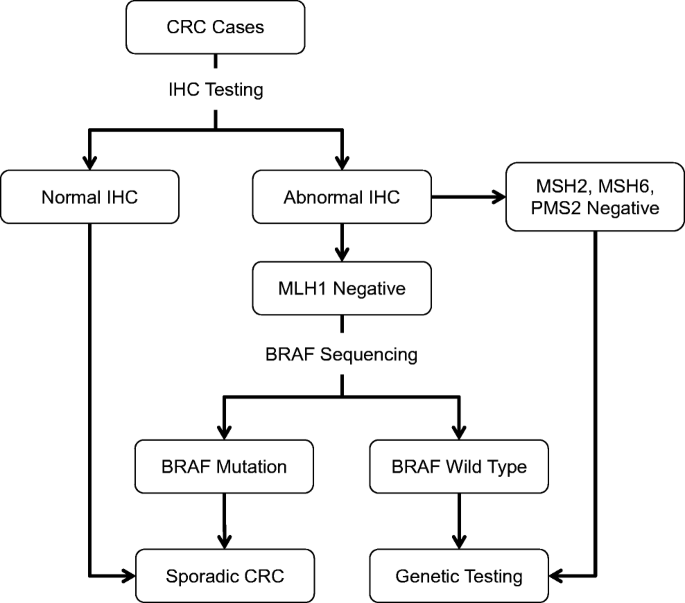




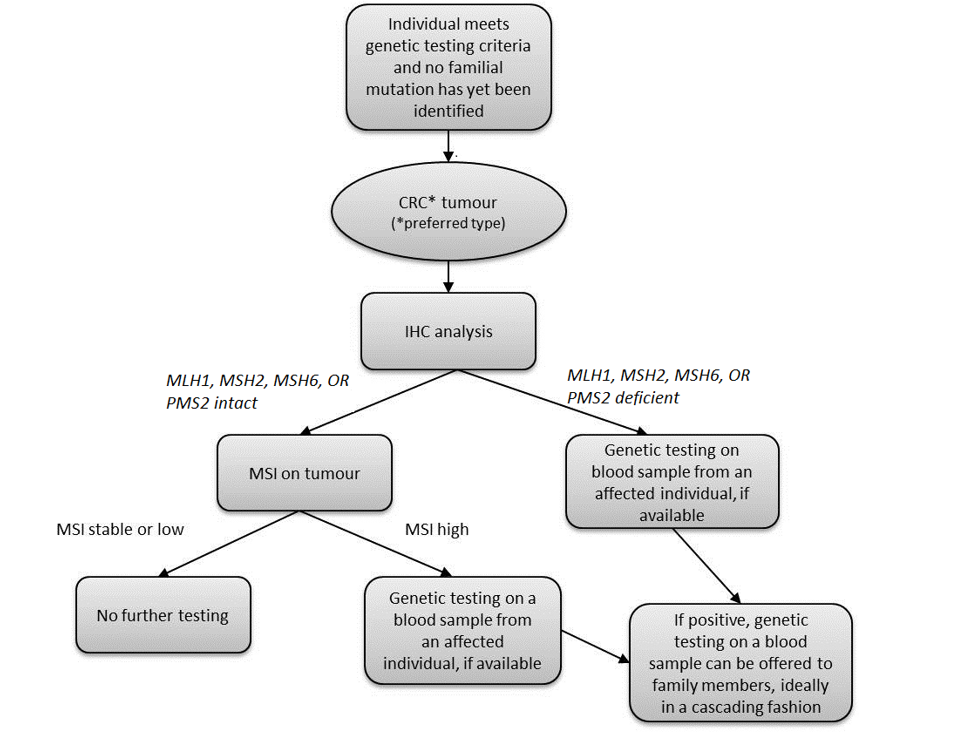
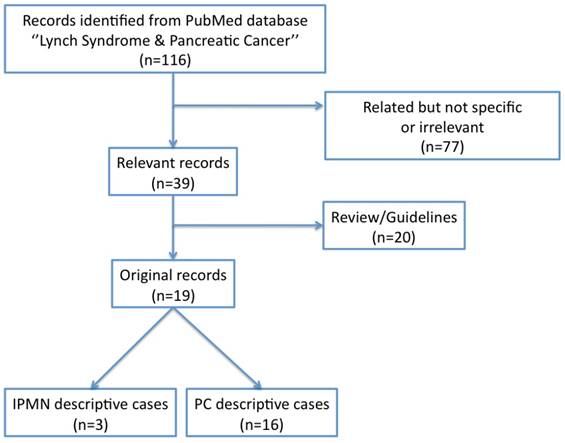

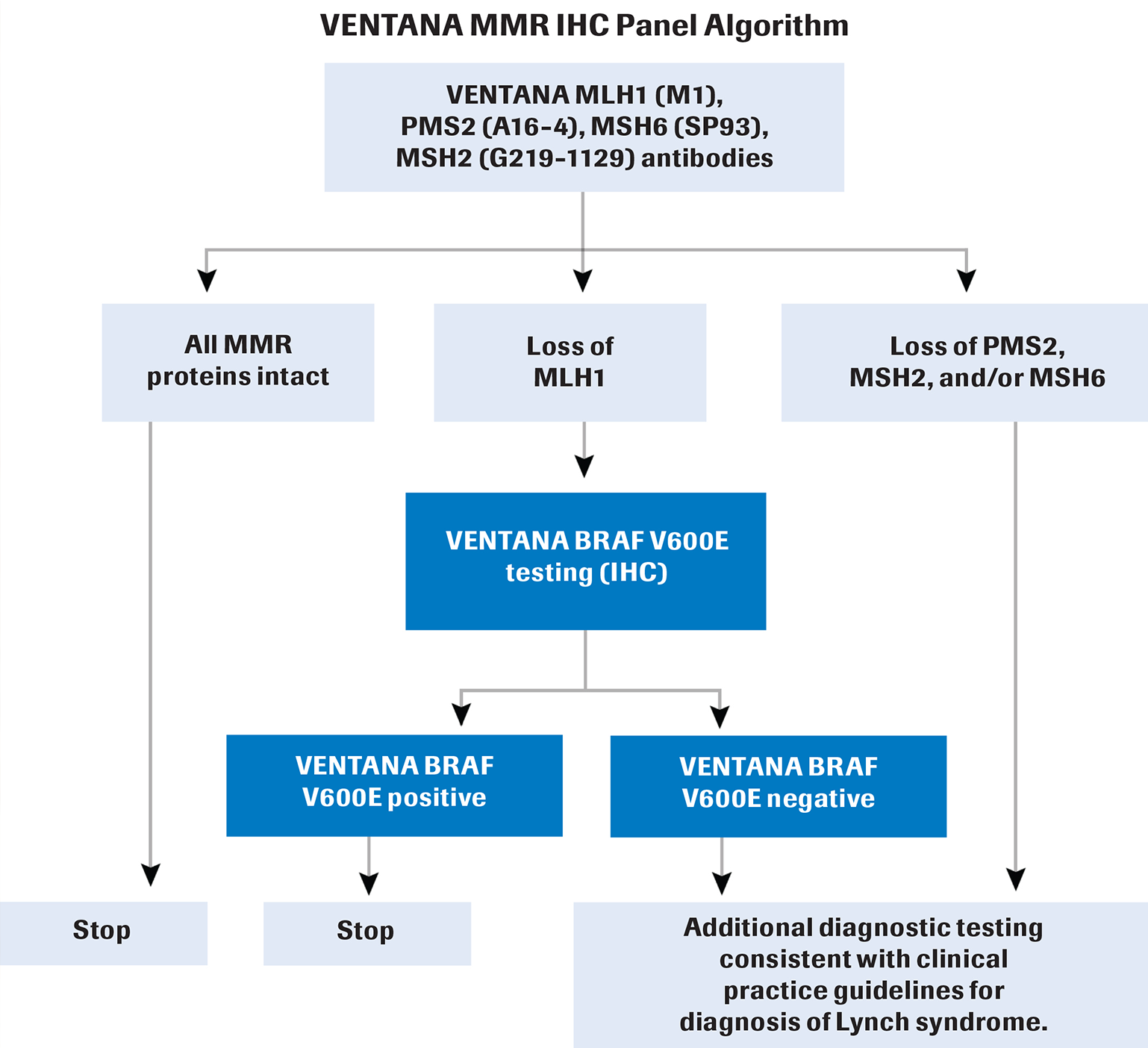
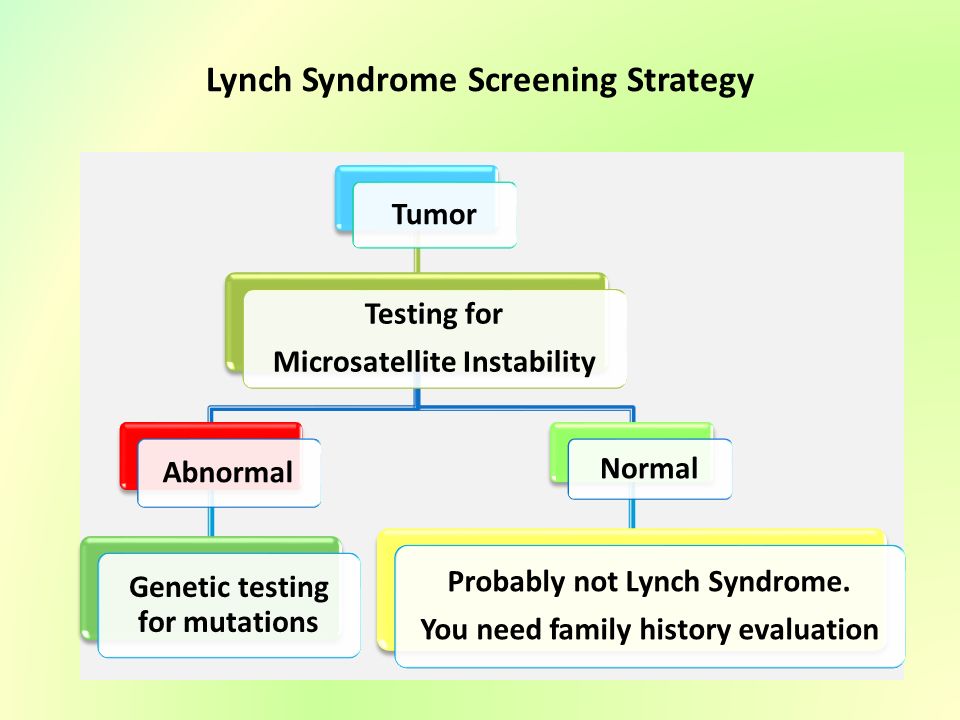

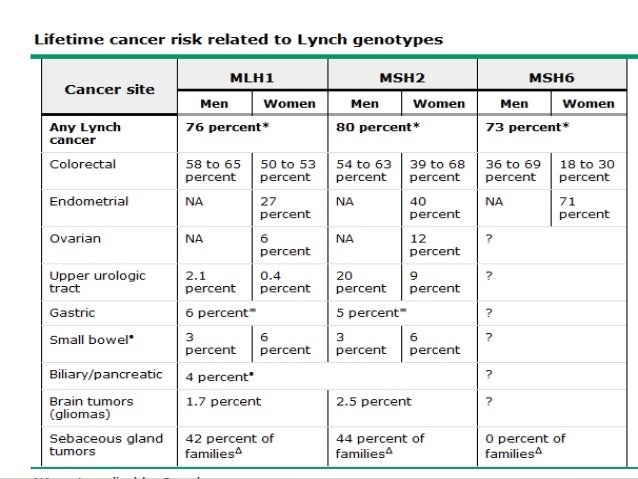









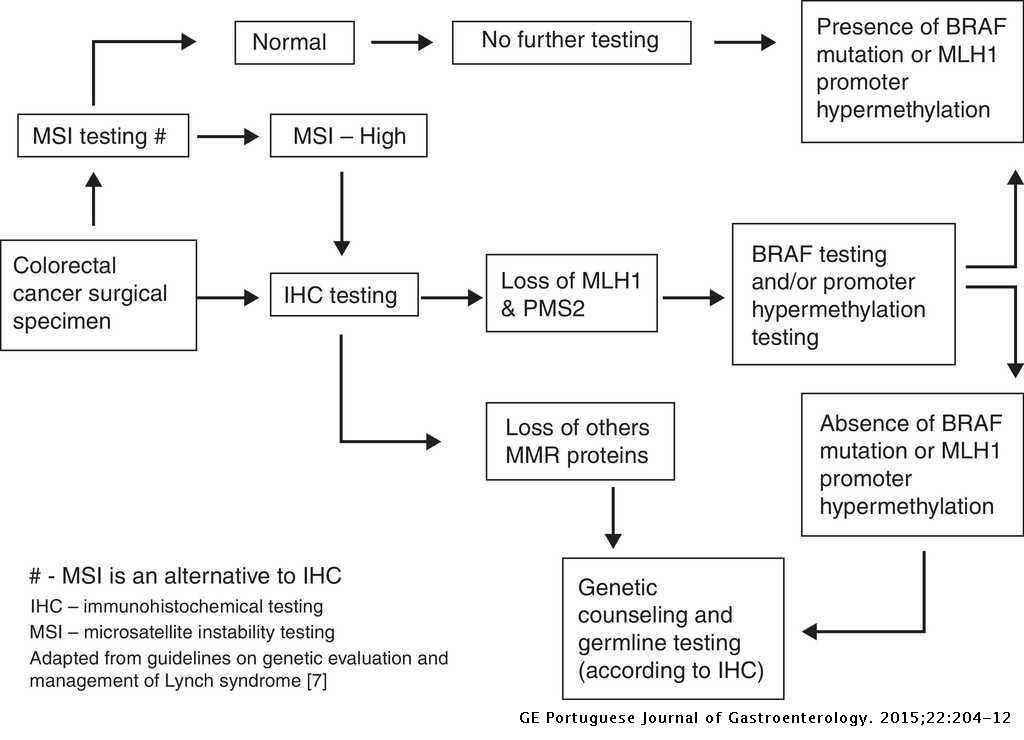
Post a Comment for "Testing For Lynch Syndrome"